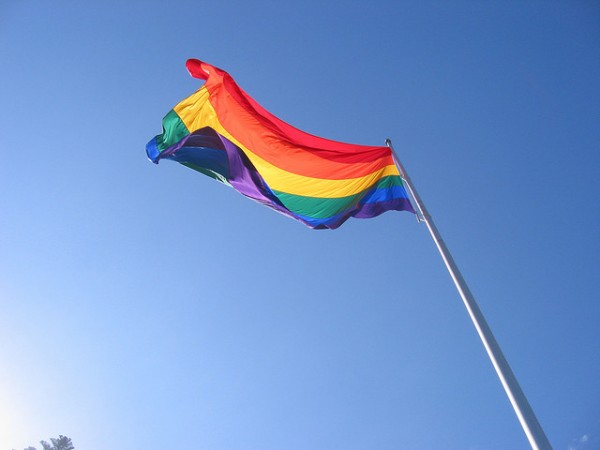Growing up in Merced, I did not feel that the town was accepting of gay people, or of me in particular. People around my public high school would carelessly throw out homophobic slurs and make fun of openly queer individuals. This made it hard to accept who I was as a teenager, much less express myself. Even though Merced is home to a great new University of California campus, I resolved to leave as soon as I could. And I did.
So did my friends, who set out for the Bay Area, San Diego, and Los Angeles. My own destination, two months after graduating high school in 2012, was a town just outside San Francisco. While I only stayed only seven months, it was refreshing to see so many different types of people and no one batting an eye at them. Everyone seemed free to express their gender how they pleased.
But times and places can change–and fast. After moving back to Merced, I began to see more openness and diversity. And so one day in late August, I found myself driving to the opening of the town’s first-ever Lesbian, Gay, Bisexual, and Transgender Community Center, right in the middle of downtown on G Street.
I had followed the progress of the Center from friends who were heavily involved in its making, from obtaining grants to preparing the space. But I was anxious as the opening date approached Merced. I was not sure how many people would show up. I worried that no one would be there at all.
It was a miserably hot day, but I swear the short drive to the center felt like one of those breezy San Francisco evenings when you’re anxiously waiting around to see your favorite band play. When my sister (with whom I live) and I finally turned onto G Street from our apartment here in Merced, in our truck, we were surprised to find that all the parking spots were filled. It was the first sign that something exceptional was taking place. Outside the Center, a crowd struggled to get into the building which is located in a business area surrounded by tax offices and immigration lawyers. More than a hundred people of all ages–parents, children, young adults–had showed up.
My sister and I walked through the Center, which has spaces for meetings, a library of books and videos, and an office area that visitors can use to do computer work like job applications or homework. There is also an abundance of educational material about sexual education, sexual identity, domestic abuse, and related topics. The whole place is brightly colored and welcoming.
While eating chocolate-covered pretzels with rainbow sprinkles, I caught up with old pals and made sure to congratulate the friends whose pioneering work created the center. As we headed out the door to leave, we ended up staying an extra 20 minutes, greeting people who kept arriving.
Then, as we were starting to drive away, the board members hoisted the rainbow flag outside on top of the building. My sister agreed to stop in the middle of the road–despite getting a green light–so I could take pictures. I shouted “amazing” and started to tear up. I have seen the gay pride flag countless times in different cities. In fact, my mom had one on display inside our house when I was younger. But to see it raised publicly in my small town meant something different. It is a flag no one will be able to miss, on one of downtown’s busiest streets. It reassures people who have been in Merced their whole lives that this is a safe place for them, and it says the same thing to anyone who’s just passing through.
Can a rainbow flag change Merced? Yes.
The flag, and the new Center, made me realize that Merced has more to offer people like me than I ever believed. It has a sense of community I hadn’t appreciated. And it offers a place where one can feel safe.
UC Merced is bringing in thousands of new people every year, and we want them all to feel that this is a united community where they are safe to grow and change. For now, I still intend to make a life somewhere else. But I look forward to visiting the place I’m from, and watching it change.
Bee Hernandez, a former student and a tutor in Merced, is active in community and progressive groups.
This essay was supported by a grant from the Sierra Health Foundation.
This was originally published by Zócalo Public Square on 10/14/2014.










